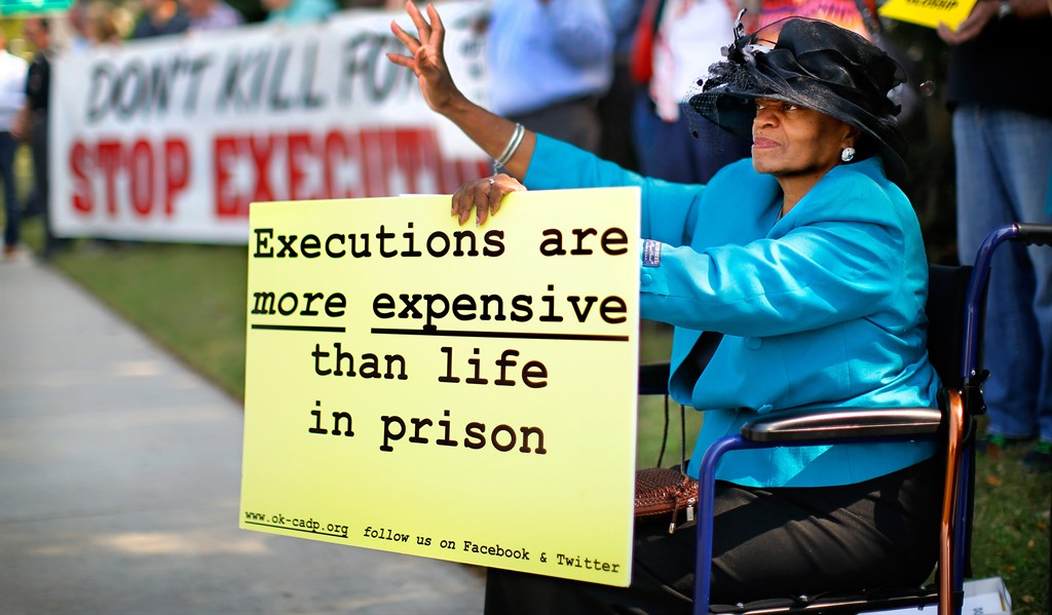Richard Glossip has been on death row in Oklahoma since 1998, after he was convicted of murder. He has maintained his innocence throughout his time in prison. Investigations have shown that the case against him is rather shaky, sparking widespread controversy and calls for his release.
The case began in 1997, when Glossip’s boss at the Best Budget Inn in Oklahoma City, Barry Van Treese, was murdered. Glossip, who was the hotel’s manager, was accused of conspiring with a maintenance worker named Justin Sneed to carry out the murder. Sneed confessed to the crime and claimed that Glossip had paid him to carry out the killing.
Glossip was tried and convicted of murder in 1998, based largely on Sneed’s testimony. He has been on death row ever since, fighting to prove his innocence and avoid execution. Over the years, a number of high-profile individuals and organizations have become involved in his case, including actress Susan Sarandon, who has been a vocal supporter of his cause.
One of the key problems in the case against Glossip is the reliability, or lack thereof, of Sneed’s testimony. Sneed initially claimed that he acted alone in the murder, but later changed his story and implicated Glossip. He was given a plea deal in exchange for his testimony, which some argue gave him an incentive to implicate Glossip in order to save himself from the death penalty.
Another issue in Glossip’s case is the lack of physical evidence tying him to the crime. There were no fingerprints or DNA found at the scene that could definitively link Glossip to the murder. Instead, the prosecution relied heavily on Sneed’s testimony and circumstantial evidence, such as Glossip’s presence at the hotel on the night of the murder.
The cracks in the state’s case against Glossip were apparent shortly after he was convicted. In 2001, his conviction was overturned. The state granted him a new trial after an appeals court found that the evidence used against him was weak. Unfortunately, he was later reconvicted in 2004 and sentenced to death once again. Nevertheless, he and his allies continued fighting to overturn his case.
Over the past two years, numerous inquiries into Glossip’s case have been made, according to Reason Magazine. A bipartisan group of lawmakers launched an investigation into the matter in 2021. When the investigation was concluded, lawmakers exposed egregious conduct among members of the prosecution. It was discovered that the county district attorney’s office instructed law enforcement officials to destroy evidence that could have served to exonerate Glossip.
Investigators also unearthed “police contamination of the state’s star witness, Justin Sneed, the actual killer, who implicated Glossip only after the detectives mentioned Glossip’s name to Sneed six times during his interrogation,” according to a press release. “Likewise, the investigation uncovered additional evidence, never presented to the jury or to any court, that would likely have led to a different outcome in the case.”
Another investigation into the case has prompted Oklahoma Attorney General Gentner Drummond to request that the state overturn Glossip’s conviction and to give him another trial.
“After thorough and serious deliberation, I have concluded that I cannot stand behind the murder conviction and death sentence of Richard Glossip,” the attorney general said in a statement. “Considering everything I know about this case, I do not believe that justice is served by executing a man based on the testimony of a compromised witness.”
Nevertheless, even Drummond’s pleas have not stopped plans to execute Glossip. An appeals court recently refused to vacate Glossip’s conviction, claiming that he did not provide “sufficient information that would convince this Court to overturn the jury’s determination that he is guilty.”
The state parole board also declined to grant Glossip clemency even though Drummond personally testified on his behalf. “I want to acknowledge how unusual it is for the state to support a clemency application of a death row inmate,” the attorney general said. “I’m not aware of anytime in our history that an attorney general has appeared before this board and argued for clemency. I’m also not aware of any time in the history of Oklahoma when justice would require it. Ultimately that is why we are here.”
Despite the many flaws in the state’s case, Glossip’s appeals have been denied at every level, and he remains on death row. His case has become a rallying cry for anti-death penalty activists, who argue that the system is flawed and that innocent people are sometimes executed.
His execution is scheduled for May 18. However, a recent report from The Oklahoman indicates that the attorney general might be able to delay it until 2024.
However, the national attention his case has received might just help to move things in the right direction. I’m against the death penalty in general. But Glossip’s case in one that even those who support capital punishment should take issue with.
In this case, there is compelling evidence showing that the state of Oklahoma is set to take an innocent man’s life. If the prosecution engaged in misconduct to the point of destroying exculpatory evidence and based the bulk of its case on an untrustworthy witness, then it does not make sense to allow Glossip to be killed. Regardless of the stance one takes toward the death penalty, we can all agree that the state should not be in the business of killing innocent people.
There are still people fighting to save Glossip’s life despite the setbacks. Currently, there is a petition urge Gov. Kevin Stitt to grant a 60-day reprieve to allow lawyers to work through the courts to secure Glossip’s freedom or get him another trial. If you think Glossip’s case deserves more consideration, you can quickly sign it here.













Join the conversation as a VIP Member